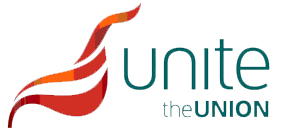Each of the six free online courses will take about 15 hours to complete. Learners can collect online badges, which can be shared with employers, displayed on social media sites and kept in your TUC Education backpack. For more information about each of the courses, please
click on the links below.
please click on the links below.
This course consists of three sections:
- How did I get here?, which helps you to take stock of where you are by exploring the roles you play in life, reflecting on your experiences – both positive and negative, recognising your achievements and identifying your strengths, weaknesses, and the opportunities and threats you face.
- Where do I want to go?, which helps you to move forward by exploring the changes you want to make, enabling you to gather information, helping you to consider what options are available, make good decisions and to define and refine your goals.
- How do I get there?, which helps you to make sound decisions, set realistic goals and create feasible action plans. You will also receive useful advice on the recruitment process, and on how to complete job applications, write CV and covering letters, and prepare for interviews and their aftermath.
Learning outcomes:
- reflect on where you are now and where you would like to be
- understand the impact of change for you and what options are open to you
- identify your goals and action that you can take next to reach them.
This course consists of four sections:
- The healthcare assistant role considers the role and responsibilities of a healthcare assistant and introduces basic concepts of healthcare. This section will also look at your personal development, and the importance of looking after yourself.
- Working with patients and colleagues looks at caring for your patients in a person-centred way, and developing skills in communication and teamwork. This section will also consider the ways that you will need to handle patient information in your role, and the importance of consent and confidentiality.
- Your healthcare practice covers privacy and dignity, and some aspects of your healthcare assistant role (maintaining fluids and nutrition, health and safety, and basic life support). This section also raises your awareness of mental health.
- Duty of care looks at your duty of care as a healthcare assistant, and how you are accountable for your actions. It will explore what action to take if you become aware of poor practice in your workplace and how you should handle various incidents at work. Other areas you will learn about include safeguarding and the importance of understanding equality, diversity and inclusive practice.
Learning outcomes:
- explain what the day-to-day role of a healthcare assistant entails and what duties you might be asked to perform
- recognise some of the basic concepts that will enable a person-centred approach to care
- identify approaches to healthcare practice which enable patient safety
- explain some of the legal responsibilities within the healthcare assistant role.
This course consists of five sections:
- Developing and managing relationships looks at the stages of child development through the use of case studies and an introduction to child development theory. It considers the roles of family, as well as support workers, in relation to this development.
- Encouraging reading considers how children learn to read and develop literacy skills from when they are babies to secondary school.
- Behavioural management looks at possible causes of children and young people’s behaviour and some common strategies for managing behaviour.
- Special needs looks at what we mean by special educational needs and disability (SEND) and the role of teaching assistants in supporting children with SEND.
- Professional development plan (PDP) looks at the importance of reflecting on your own practice and how drawing up a PDP can help you to think about your personal and career development.
Learning outcomes:
- have an insight into the varying perspectives of children from early years through to secondary school
- reflect on personal experience and practice, identify strengths and weaknesses, and apply this to your practice issues
- understand how some theories attempt to explain children’s development
- reflect on the value of the work of teaching assistants, the support skills involved, and thinking about your future role
This course consists of five sections:
- Good communication looks at ways of communicating, improving your listening and interpersonal skills, and recording and reporting.
- Mental health awareness considers types of mental health problems and how they affect the cared-for person and the role of the carer.
- Palliative and end-of-life care examines how care is provided for people who receive palliative and end-of-life care, and what is meant by a good death.
- Positive risk-taking explains why it is important to balance safe care with positive risk-taking to promote a more fulfilling life for the cared-for person.
- Looking after yourself looks at the importance of carers looking after their own physical and emotional well-being and ways to manage stress.
Learning outcomes:
- be able to describe the role and responsibilities of carers
- recognise some of the basic concepts that will enable a person-centred approach to care
- identify the different needs of a cared-for person, at different stages of their care
- understand the impact that caring may have upon carers, and how this might be managed
- explain some of the legal responsibilities within the caring role.
This course consists of four sections:
- Defining and exploring the voluntary sector looks at the nature of the sector, the rules that organisations have to follow, the size and scope of the sector, and the guiding principles and values of voluntary organisations.
- Money considers key financial and fundraising aspects of voluntary organisations, including how organisations plan and track income and expenditure, and what the main sources of income are. This section also provides ideas for effective fundraising.
- Volunteering covers the crucial role of volunteers, what they do and the reasons they volunteer. This section also explores how to recruit and retain volunteers, including best practice in providing support and managing them.
- Accountability and communications considers the key roles and responsibilities of trustees in voluntary organisations, and the difference and impact that voluntary organisations make to people, communities or the environment. It also looks at how to be a good communicator in working with others.
Learning outcomes:
- understand the role and scope of the voluntary sector, its environment and workforce
- recognise and use some of the terms and concepts associated with the voluntary sector
- be able to describe the key areas of work in a voluntary organisation and how to apply your knowledge about the sector to your own work or volunteering (if already active in the sector)
- be able to clarify, and feel more confident about, where your skills and interests might fit within the voluntary sector and know where to go for further information, training and support
This course consists of four sections:
- Small business structures looks at the different ways in which a small business could be set up and operated in the United Kingdom. The section will encourage you to consider a small business you are planning to set up or one that you are interested in. You will then select an appropriate structure for the business.
- Small business and customers looks at sales and marketing approaches for small businesses and how to nurture effective customer relationships. You will then take your small business idea and create a plan for the business to improve the relationships with customers.
- Small business and responsibilities covers legal requirements and financial aspects of small businesses. These include how to transfer money within a business and relationships with regulatory organisations. You will review your business idea and consider the most appropriate legal structure and the financial and legal responsibilities for your chosen business idea.
- Succeeding in a small business looks at the common features shared by successful small businesses and some of the potential pitfalls in running a small business. You will use this information to produce an action plan to improve the potential for success for your business idea.
Learning outcomes:
- explain what business structures are available and suitable for a small business in the UK
- recognise the ways in which a small business can gain and keep customers
- identify the financial and legal obligations of running a small business
- explain some of the common aspects of successful small businesses
Please register below to gain access to the 6 free online courses. By registering, you are accepting that your personal data will be used to contact you for any future research conducted by TUC unionlearn or our funder DfE.

